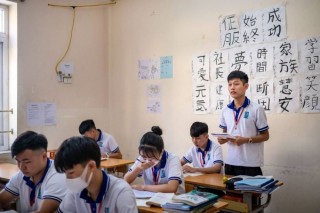Loading
Search
▼ Japan To Launch Overhauled Residency System For Foreign Workers In 2027
- Category:Tourism
Japan has adopted a basic policy to implement a new residency qualification system for foreign workers, set to begin in April 2027. The move aims to replace the controversial technical intern training program and attract skilled labor from abroad through structured skill development and improved worker protections, reads a Japan Times post.
The new system, titled “employment for skill development,” will unify the sectors it covers with those under the 2019 specified skills system, which caters to highly skilled workers.
Unlike the previous intern program, which faced widespread criticism for labor exploitation and human rights abuses, the new policy focuses on cultivating foreign talent for long-term contributions to Japan’s workforce.
Foreign workers accepted under this scheme will undergo a three-year training program, ultimately qualifying for Type 1 Specified Skills residency, which allows them to remain in Japan for up to five years.
The system will also allow workers to change employers within the same industry, provided they meet specific skill and language proficiency criteria—an option previously unavailable under the intern training program.
To prevent labor poaching and maintain industry balance, a one- to two-year restriction period on job transfers will apply. Only approved companies with strong compliance records will be permitted to hire transferring trainees.
The government is paying particular attention to labor shortages in rural areas. Select rural companies will be allowed to accept up to three times more foreign workers than currently permitted, based on the number of full-time employees.
In contrast, urban companies will face stricter limits to prevent the over-concentration of foreign labor in metropolitan centers. For example, transferred trainees may make up no more than one-third of foreign workers at rural companies, and just one-sixth at urban firms.
Japan’s decision comes amid intensifying regional competition for labor, with neighboring countries like South Korea and Taiwan expanding their foreign workforce programs. Japan’s relative decline in economic appeal—highlighted by South Korea surpassing Japan in nominal GDP per capita in 2022—has added urgency to its immigration reforms.
With the basic policy now in place, the government is working on detailed rules tailored to individual sectors. These are expected to be finalized by the end of 2025, following expert panel discussions, to ensure the new residency system is ready for full implementation by April 2027.
- July 29, 2025
- Comment (0)
- Trackback(0)


